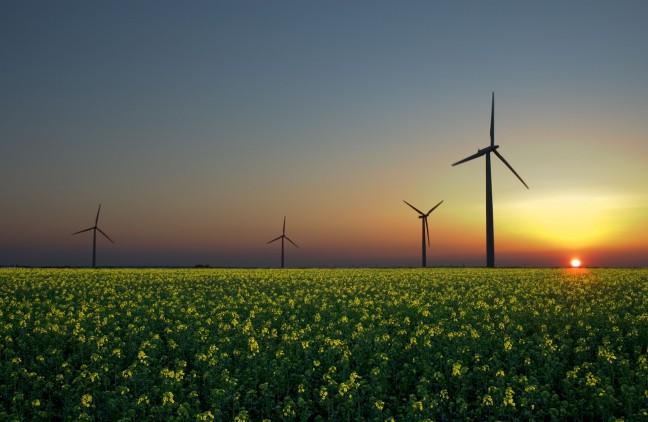Continuing their efforts to move toward cleaner energy, the city of Madison created a subcommittee to reexamine and update sustainability its goals.
The subcommittee, which falls under the Sustainable Madison Committee, hopes to include more community voices when addressing the city’s concerns for the environment — particularly with Madison’s Energy Plan.
The primary goals of the plan are to reduce 80 percent of carbon emissions by 2050, have 25 percent of electricity, heating and transportation energy come from renewable sources by 2025 and reduce overall energy consumption by 50 percent by 2030.
Since the subcommittee is largely comprised of volunteers, Richard Heinemann, one of the architects for the plan and energy law attorney, said he believes it is a “good reflection” of the community’s goals for clean energy in the city.
Heinemann said he thinks the subcommittee will improve sustainability efforts by going beyond the Madison Energy Plan to address additional concerns of the community. He hopes it will also help the city do a better job of communicating clean energy successes to citizens.
Other community members, however, such as Mitch Brey, campaign organizer for RePower Madison, said the subcommittee’s goals are not “ambitious” enough.
One area Brey said he feels the subcommittee should focus on is community outreach. He said there should be more public hearings at times when it’s most convenient for community members, who otherwise may be working throughout the week, to attend. In addition, he said he believes community involvement will help the subcommittee be transparent in their operations.
“[The first meeting] was disheartening because they focused more on city operations when they should be focusing more on impacting the community,” Brey said.
Raj Shukla, chair of the Sustainable Madison Committee, said the subcommittee is working to gain more feedback from residents by hosting public forums.
The subcommittee held their first community-wide discussion Aug. 26 to talk about the plan and whether their goals needed to be updated or revised.
Moving forward, Shukla encourages citizens, especially students, to attend these meetings so their voices can be heard.
“Young, fresh-minded students showing up to these meetings will have a lot of impact on our discussions,” Shukla said. “[The subcommittee] is a place where people will listen to you.”
In addition to having more community involvement, Brey said the city should be more “aggressive” in their goals toward renewable energy. He added that Madison needs to transition its electricity sector to run on clean, renewable energy and focus on making the city fossil fuel free.
In the near future, Shukla said he wants to know from city administrators exactly how scientifically feasible everything is, how fast their goals can be reached and what health ramifications may arise if no actions are taken as soon as possible.
To reduce health risks to citizens that could come from carbon emissions, Shukla said it’s important to start implementing the goals as soon as possible.
“The goal is to target when we can get to zero carbon emissions,” Shukla said. “We need to act fast to address city operations and the broader community.”
The subcommittee meets every third Monday of the month, with the next meeting planned for Sept. 19.


